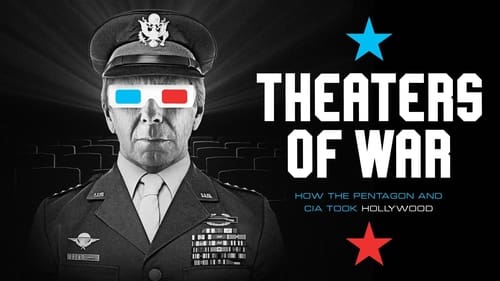
Executive Producer
If you’ve seen Top Gun or Transformers, you may have wondered: Does all of that military machinery on screen come with strings attached? Does the military actually get a crack at the script? With the release of a vast new trove of internal government documents, the answers have come into sharp focus: the US military has exercised editorial control over thousands of films and television programs. As these activities gain new public scrutiny, new questions arise: How have they managed to fly under the radar for so long? And where do we go from here?

Narrator
If you’ve seen Top Gun or Transformers, you may have wondered: Does all of that military machinery on screen come with strings attached? Does the military actually get a crack at the script? With the release of a vast new trove of internal government documents, the answers have come into sharp focus: the US military has exercised editorial control over thousands of films and television programs. As these activities gain new public scrutiny, new questions arise: How have they managed to fly under the radar for so long? And where do we go from here?

Director
If you’ve seen Top Gun or Transformers, you may have wondered: Does all of that military machinery on screen come with strings attached? Does the military actually get a crack at the script? With the release of a vast new trove of internal government documents, the answers have come into sharp focus: the US military has exercised editorial control over thousands of films and television programs. As these activities gain new public scrutiny, new questions arise: How have they managed to fly under the radar for so long? And where do we go from here?

Director
The sophistication of video games like Modern Warfare, America's Army, Medal of Honor, and Battlefield is undeniable, offering users a stunningly realistic experience of ground combat and a glimpse into the increasingly virtual world of long-distance, push-button warfare. Far less clear, though, is what these games are doing to users, our political culture, and our capacity to empathize with people directly affected by the actual trauma of war. For the culture-jamming activists featured in this film, these uncertainties were a call to action. In three separate vignettes, we see how Anne-Marie Schleiner, Wafaa Bilal, and Joseph Delappe moved dissent from the streets to our screens, infiltrating war games in an attempt to break the hypnotic spell of "militainment." Their work forces all of us -- gamers and non-gamers alike -- to think critically about what it means when the clinical tools of real-world killing become forms of consumer play.

Director
Militainment, Inc. offers a fascinating, disturbing, and timely glimpse into the militarization of American popular culture, examining how U.S. news coverage has come to resemble Hollywood film, video games, and "reality television" in its glamorization of war. Mobilizing an astonishing range of media examples - from news anchors' idolatry of military machinery to the impact of government propaganda on war reporting - the film asks: How has war taken its place in the culture as an entertainment spectacle? And how does presenting war as entertainment affect the ability of citizens to evaluate the necessity and real human costs of military action?

The teacher
The title of the film, set in Luxembourg in 1942, during the Nazi occupation, amalgamates the words Schacko (helmet) and chapeau claque (opera hat). The village, in which it is set, has not yet been feeling the effects of the war at this point.




